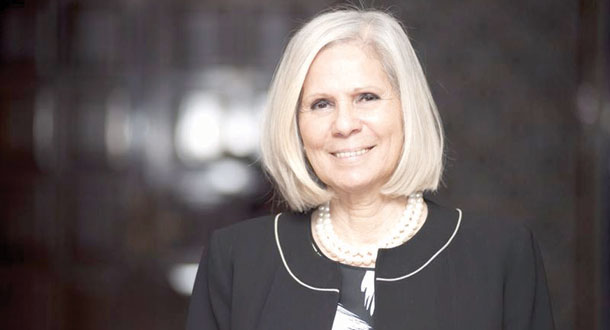Cairo, Asharq Al-Awsat—The Arab League is ready to carry out its observation mission of the Egyptian presidential election scheduled for May 26 and 27 next week, according to Dr. Haifa Abu Ghazaleh, the assistant secretary-general for media and communication whose department is responsible for the monitoring mission.
In a statement to Asharq Al-Awsat, Abu Ghazaleh said the mission’s 100 staff members would monitor the election in 22 governorates. An operations room has been set up at the Arab League headquarters in Cairo to follow the election process and delegations from other Arab countries will be invited to join in, she added.
A special secretariat reporting to the deputy secretary-general has also been established to monitor the polls. “We will—for the first time—invite all the delegations of the Arab countries to follow the Egyptian presidential election through the Arab League’s operations room, and to monitor us as well. The room is fully equipped so that we can communicate with the observers three times a day to facilitate their work,” she said.
The League’s observation mission comes at the request of Egypt’s Supreme Presidential Electoral Commission (SPEC).
The assistant secretary-general said the Arab league had “observed the Egyptian presidential election abroad,” polling for which started on May 15 and ended on May 19, “through its missions in the US, Europe and two Arab countries, Jordan and Lebanon. It was a distinctive addition, particularly as we relied on Arab volunteers who obtained permits from the SPEC.”
Abu Ghazaleh also explained how the members of the observation mission were selected, saying they come from approximately 18 Arab states, and that none of them are Egyptian.
“The Arab League’s mission consists of 100 observers, all trained at an international level, as well as volunteers. We provided them with the monitoring forms and all the relevant diaries and records they need, along with the cards which give them access to polling stations,” Abu Ghazaleh explained.
Speaking about the observations that must be recorded by monitors, Abu Ghazaleh said they are meant to note everything from the moment they enter the polling station to the end of the voting process, monitor the ballot boxes and follow the vote count.
“The Arab League’s monitors record everything they see and do not interfere in any way in the electoral process,” she said.
She added that the monitors’ observations could be positive as well, saying: “During my observation of the Egyptian presidential election abroad, in Amman, there was an advanced positive step, which is the reading of the ID card through modern electronic devices to check if the voter had previously cast their ballot.”
Abu Ghazaleh noted that the Arab League was coordinating with other institutions that will also monitor the presidential polls, including the European Union.
“We believe that the presence of a large number of these institutions for monitoring and observing [the election] is an excellent indication that these organizations are very interested in the Egyptian polls. This is because there are now more than 53 million eligible voters, and this is the biggest election to be held in the region. Everyone’s aim is to follow what is happening in Egypt,” she said.
A report of the results of the Arab League’s monitoring process, covering both the polls abroad and the domestic polls, is to be released on May 28, a day after the polls close.
Egyptian voters will go to the polls next Monday and Tuesday to elect a new president, less than a year after the ouster of former Islamist president Mohamed Mursi following mass protests against his rule. Only two candidates are running in the presidential race, former army chief Abdel-Fattah El-Sisi and leftist politician Hamdeen Sabahy.

